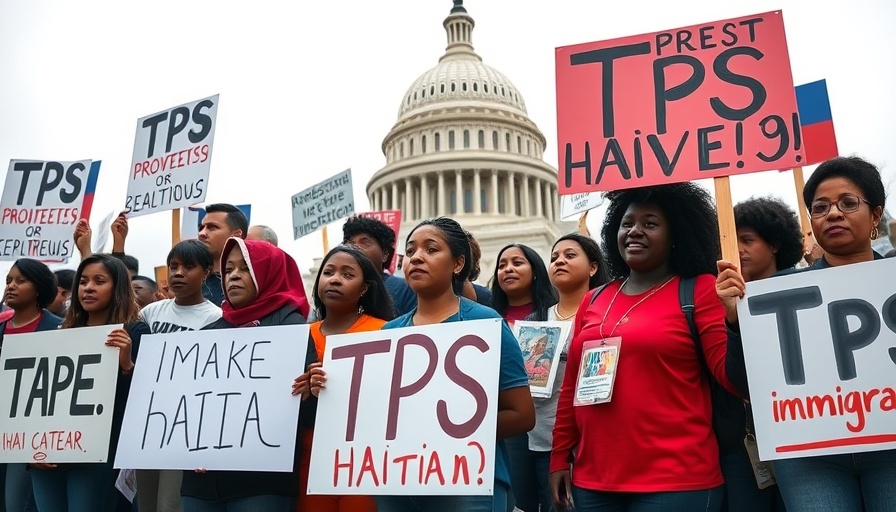
Legal Victory for Haitian Immigrants: A Cause for Hope
On July 7, 2025, the Haitian Women for Haitian Refugees (HWHR), a grassroots organization based in Brooklyn, breathed a sigh of relief as U.S. District Judge Brian Cogan ruled in favor of maintaining Temporary Protected Status (TPS) for Haitians. This landmark decision blocks the Trump administration's attempt to curtail protections for over half a million Haitian immigrants, a demographic that has significant contributions to various sectors in America.
Racism Still Looms Over Immigration Policies
While this ruling is a reason to celebrate, HWHR emphasizes that the fight is far from over. Aline Gue, Executive Director of HWHR, voiced her concerns, stating, “We welcome this decision, but make no mistake—the policies that criminalize and dehumanize Black immigrants are still in place.” This highlights the oppressive atmosphere that many immigrants, especially those of African descent, continue to face within the current legal framework.
The Importance of Community Voices
The ongoing discrimination faced by Haitian immigrants is a reminder of the critical importance of grassroots activism. The court's ruling affirms the essential role of these communities in enriching American society. With many Haitians contributing to healthcare, construction, hospitality, and education, it is evident that their futures are not disposable but interwoven with the fabric of American life. “We are your neighbors, workers, caregivers, and community members,” Gue passionately declared.
Broader Implications and Ongoing Challenges
Despite the court's decision, advocates are acutely aware that the threat is far from eliminated. Recent Supreme Court rulings have raised concerns for TPS holders from countries like Venezuela, as ongoing governmental policies continue to shape a narrative of targeting Black immigrants. The warning from HWHR about sustained resistance against future discriminatory policies serves as a rallying cry for activists nationwide.
What Comes Next?
With the TPS protections extended until February 2026, the Haitian community stands at a crucial point. As society watches closely, the legal win is not just an end, but rather a stepping stone toward recognizing the humanity and rights of all immigrants. The work ahead is vast, underscoring the need for continued mobilization to demand justice and equity in immigration policy.
 Add Row
Add Row  Add
Add 




Write A Comment